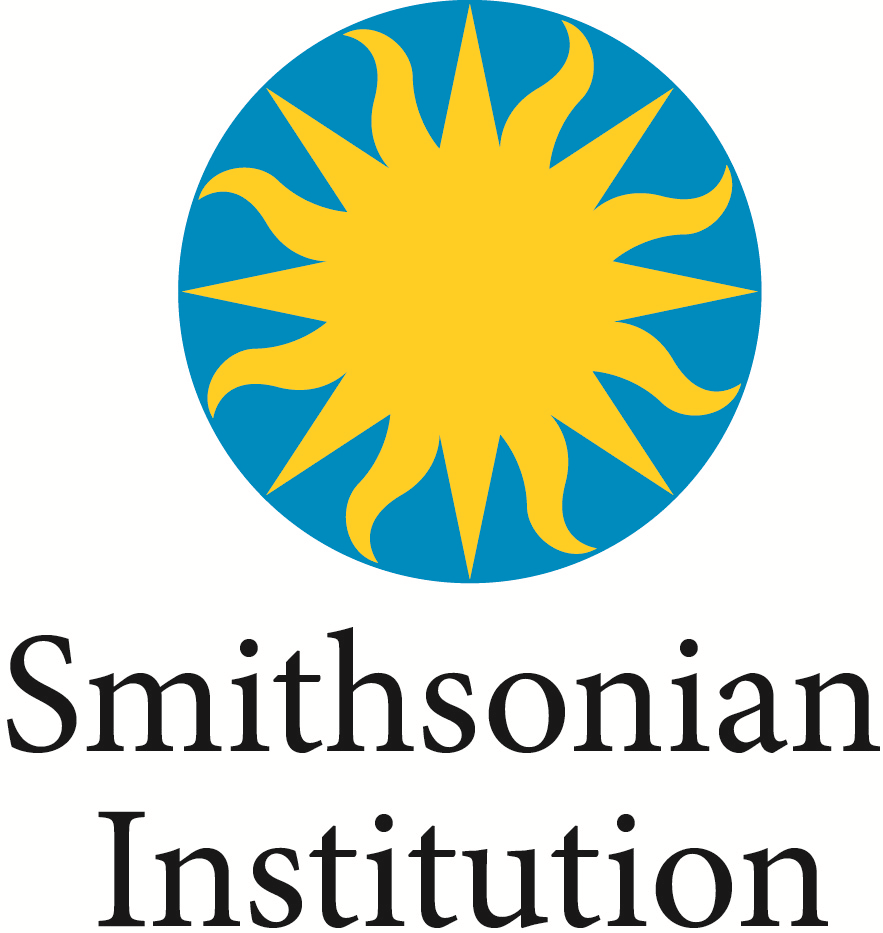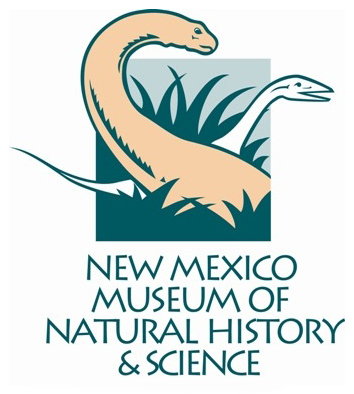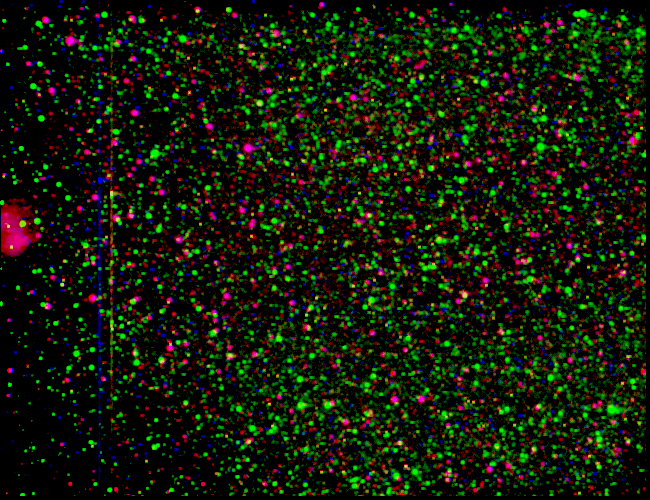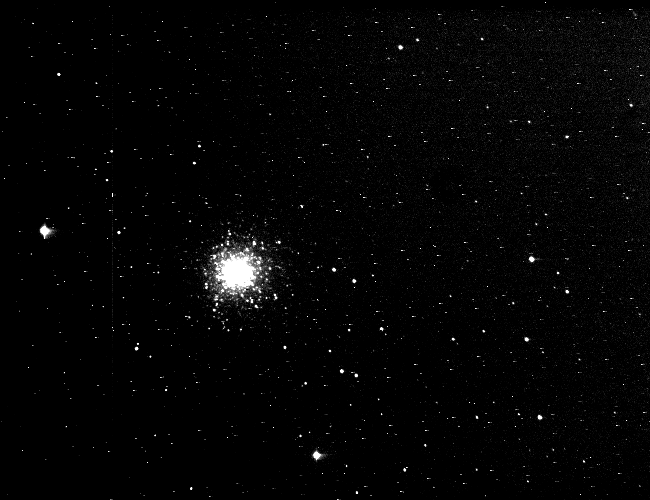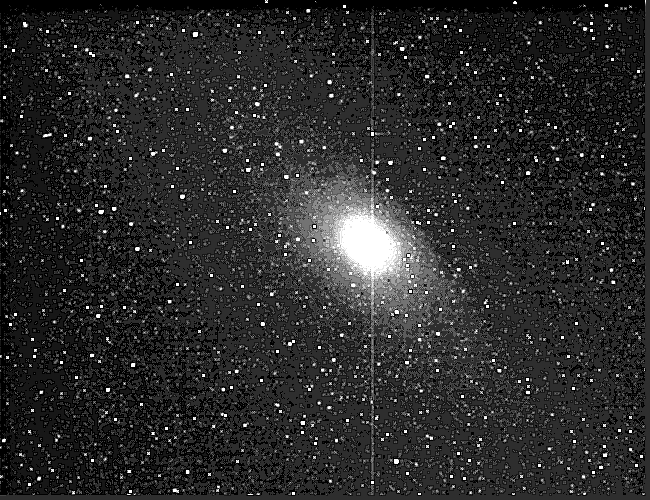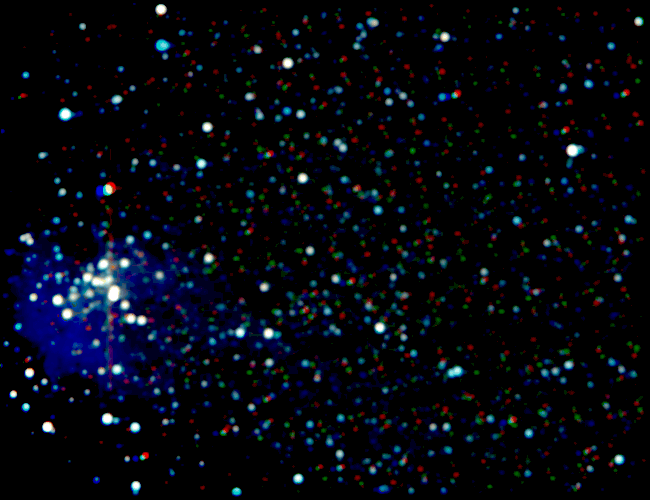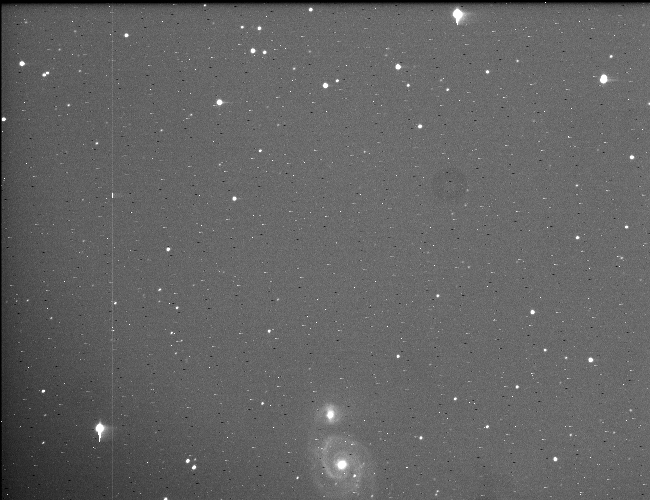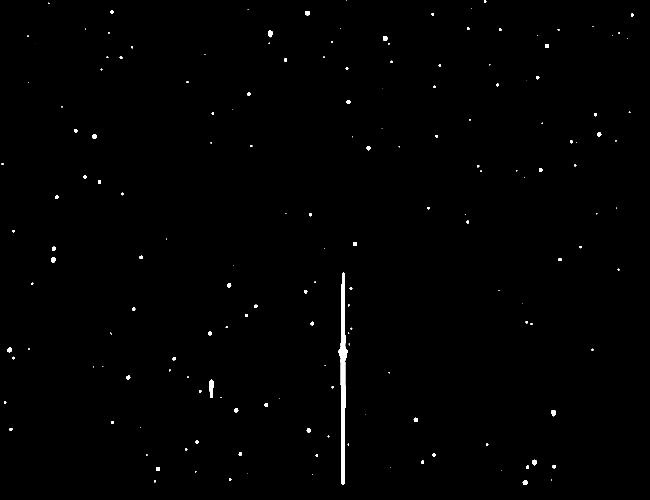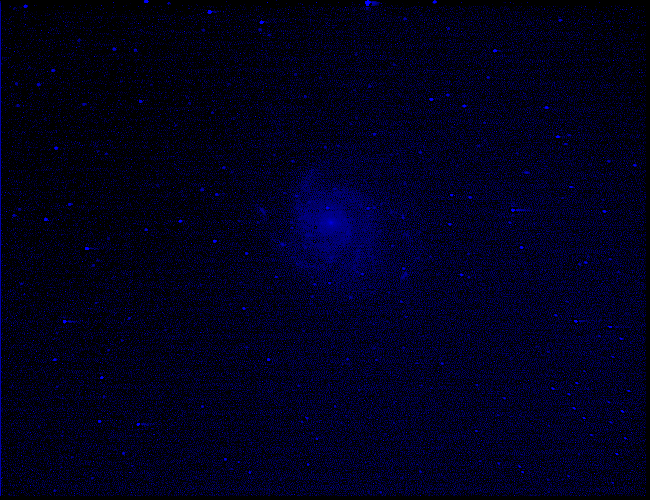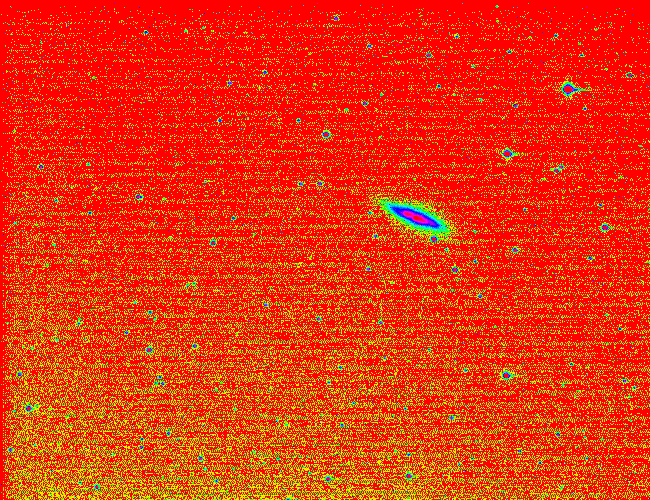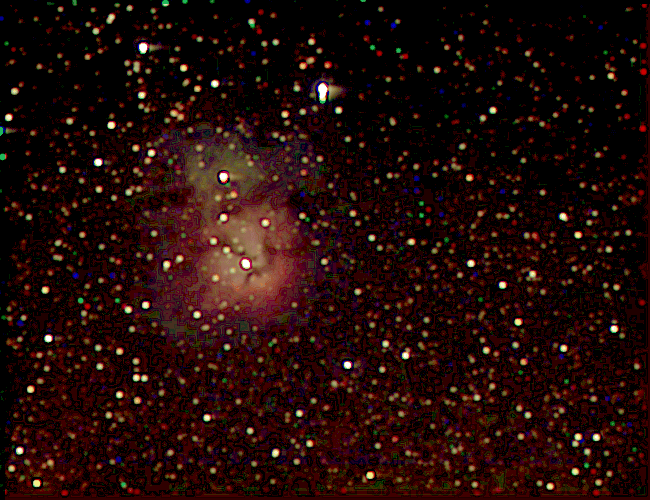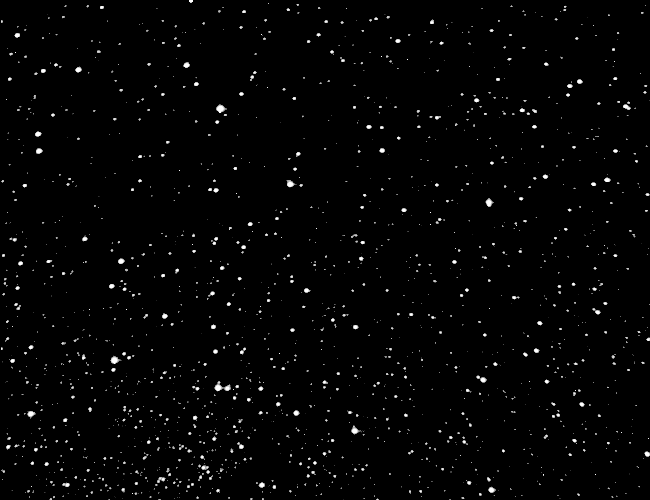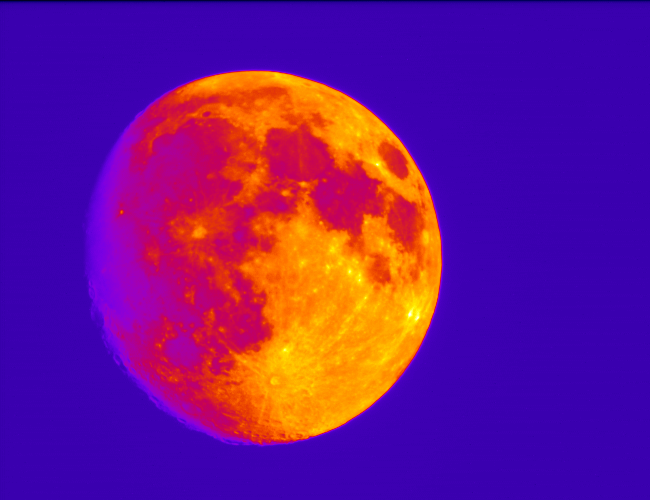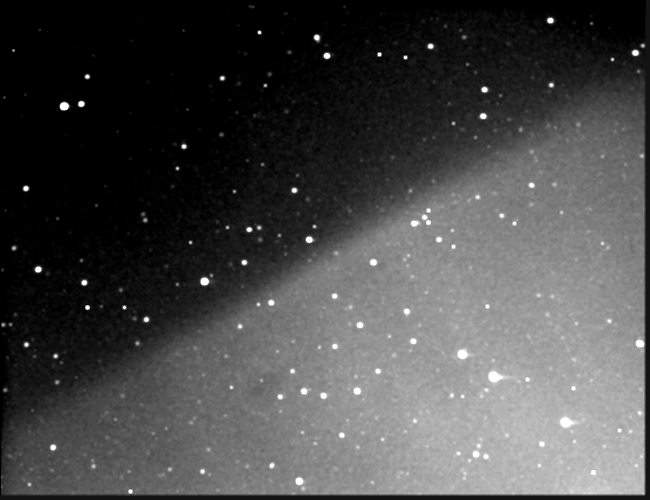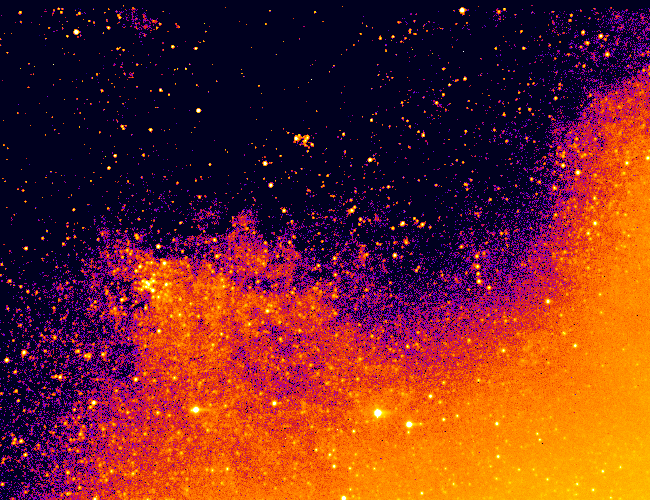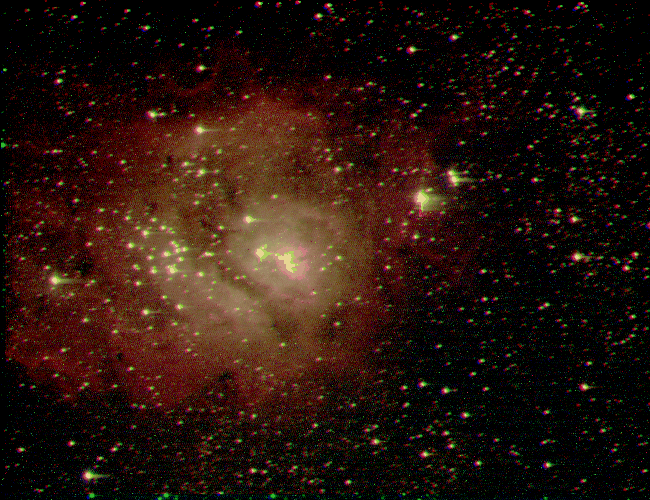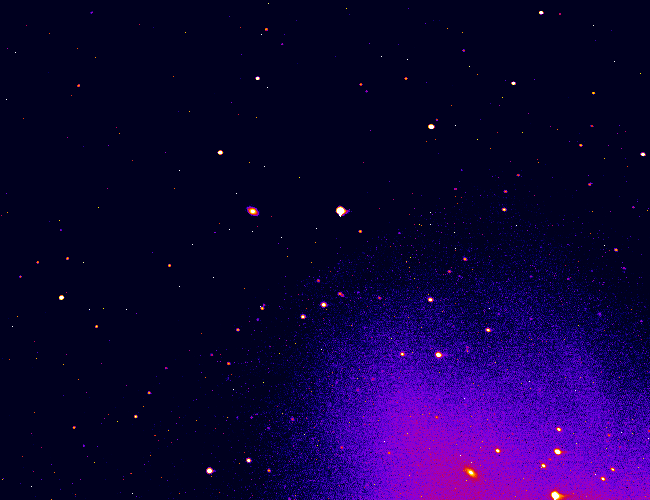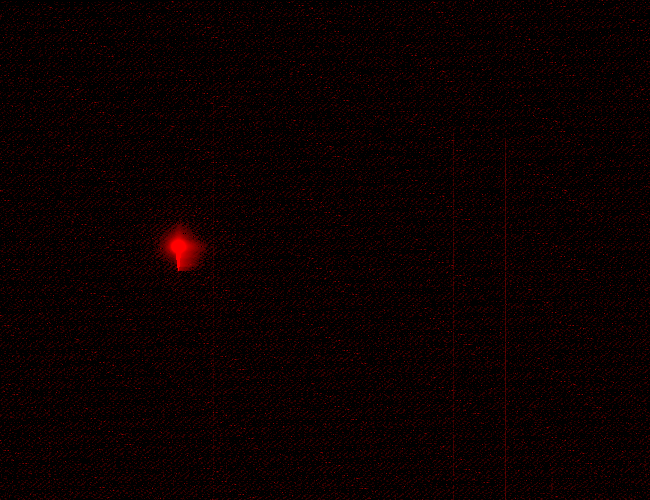The Museum is currently closed for renovations. Updates on the renovation will be available through the link Renovation Updates as well as through the museum's social media.
You are here
Youth Capture the Colorful Cosmos
The New Mexico Museum of Natural History & Science uses the MicroObservatory program during summer camp classes called Planetarium Producers. The camp is designed for children entering grades 7-9. Each participant has one week to acquire images, process them, and use them in a planetarium program presented at the end of the camp.
The MicoObservatory images developed for the past several years are displayed below. Each child selected a constellation to focus on, and the only restriction was that it had to be one in which a MiroObservatory object was currently visible. On the first day of class, the students worked through tutorials about how to order and open telescope images. For the remainder of the week, each child processed the images in any way they wished to highlight whatever scientific fact they included in their programs. During the planetarium shows they produced, the camp participants showed how to find the constellations they chose to focus upon, talked about their mythology, described the celestial objects in the images they produced, and highlighted any other interesting facts in their region of the sky. The children’s family members and friends, along with some of the museum staff, attended the planetarium program.
Create your own astronomical images at Harvard's MicroObservatory.
Find out more about the Youth Capture the Colorful Cosmos program.
2015 Camp
|
Electra - The Dumbell Nebula |
|
Piper - The Hercules Cluster |
|
Aidan - The Andromeda Galaxy |
|
Dade - the Eagle Nebula |
|
Sam - the Whirlpool Galaxy |
|
James - Cygnus X-1 |
2014 Camp
|
Aden - Pinwheel Galaxy |
Aden - Irregular Galaxy |
|
Cator - Trifid Nebula |
Cator - Sagittarius A/B/C |
|
Dade - Earth's Moon |
Dade - Quasar |
|
James - The Milky Way |
James - The Eagle Nebula |
|
Jenna - NGC-4124 |
Jenna - Mars |
